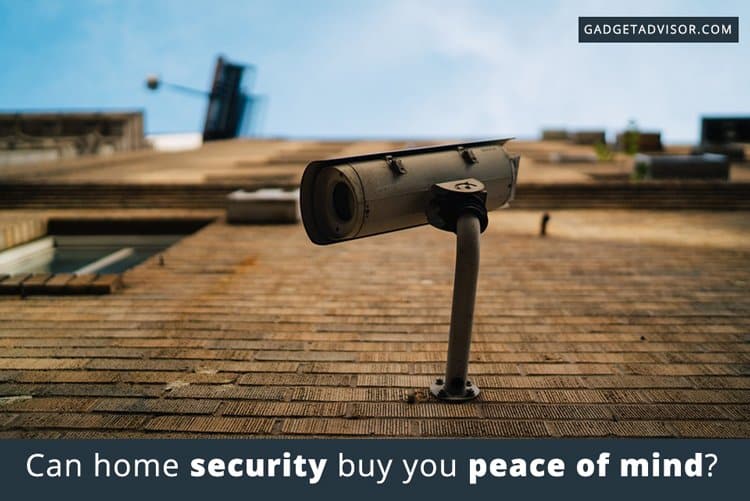Some gadgets offer us distractions or escapes from the real world. Some offer us shortcuts and practicalities. But home security gadgets, if they work as they should, offer more than that. They offer us peace of mind. In fact, prestigious security experts Banham have found that better home security actually leads to better mental health.
That’s a lot to deliver.
How much do you need home security?
Before we look at the actual workings and effectiveness of electric home security, we have to question whether it is even necessary. After all, there is no point buying peace of mind if we should have it anyway.
Unfortunately for us (but perhaps fortunately for security tech firms) home break-ins are in fact a common occurrence. According to safety advisors Safe Wise, there are over 5,400 home burglaries a day in the United States alone. That’s one every eighteen seconds.
These statistics suggest that home security is certainly necessary to ensure personal safety and the safety of your belongings. As we have seen recently in the news, even millionaire celebrities are not immune to home break-ins. So it seems at least some kind of home security is necessary to truly feel your home is safe from theft or invasion, but is it effective?
What kinds of home security are there?
Home security technology is manifold. There are several different gadgets and systems that can be used either in tandem or individually to keep your home safe.
CCTV
Home CCTV is one of them. Last year, a private CCTV camera outside someone’s home recorded the moment a cyclist crashed into a toddler and subsequently fled the scene, leaving the child horribly injured. The footage was subsequently used in a police campaign to catch the offender, and it spurred Metropolitan Police head Bernard Hogan-Howe to urge more people to install home CCTV.
Since the cameras themselves are not always expensive, installing CCTV seems to have very little downside. But is there an upside? Experts say CCTV can deter pre-planned crime, since criminals are less likely to target your house if they see a camera outside. But the ICO says that private CCTV is a legal grey area, potentially getting you in trouble for breaching others’ privacy. Following their guidelines carefully, though, should ensure your legal use of security cameras.
There are, however, according to the UK police service, better home security systems, more useful for homes.
Alarms, Access Control and Secure Locks
Alarm systems, secure locks and entry access control are touted as the most useful private security systems. With access control, perhaps the most dramatic of these measures, someone inside the property will have to grant permission to anyone who wishes to enter the building. This can be done via a video camera or voice exchange. Care homes in particular have found access control to be effective, though it may be less useful if nobody is home.
Burglar alarms could be one way around this. It has been estimated that houses with burglar alarms are four times less likely to be burgled than houses without. Clearly burglar alarms can be very effective, but they have to be installed by a professional company that is a member of the National Security Inspectorate (NSI) or Security Systems and Alarm Inspection Board (SSAIB).
Burglars are definitely deterred by alarms, but that an alarm is useless without a secure lock system. With or without alarms, access control, and CCTV, a strong, secure lock is needed for any house to be safe.
Perhaps, then, none of this technology can beat a good old fashioned lock.

